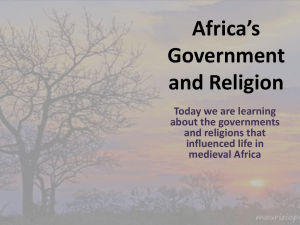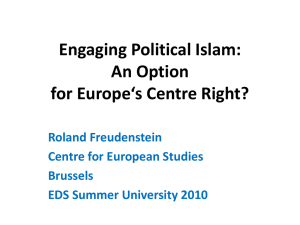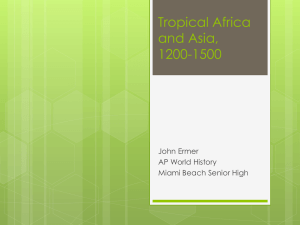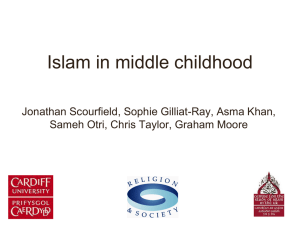Kim
advertisement
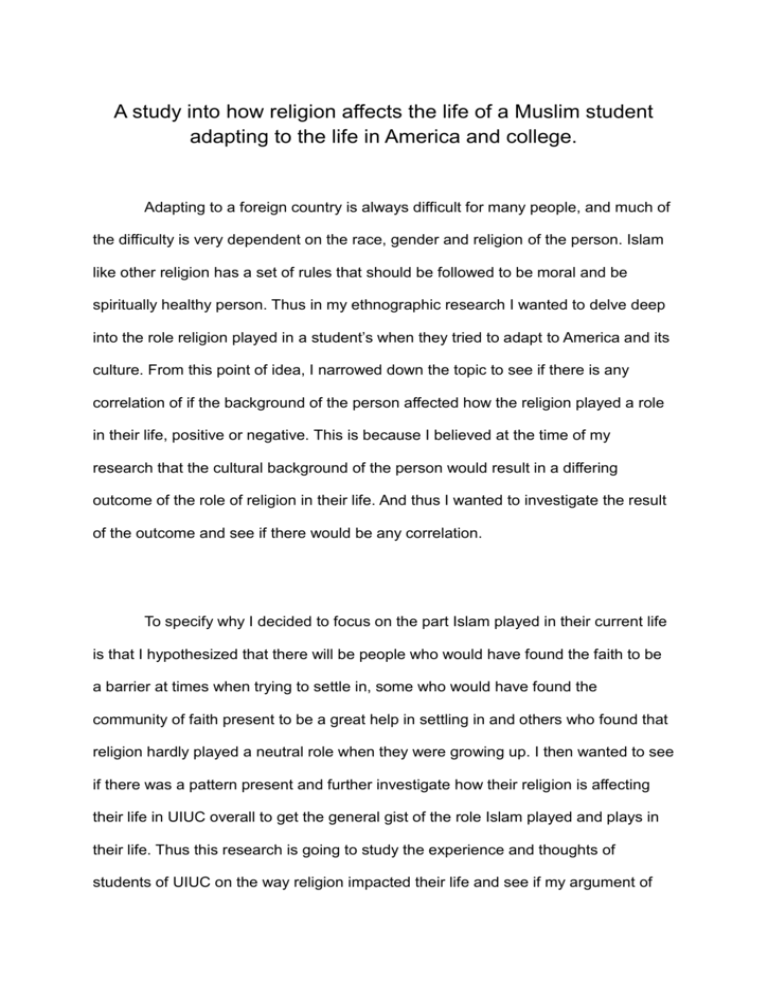
A study into how religion affects the life of a Muslim student adapting to the life in America and college. Adapting to a foreign country is always difficult for many people, and much of the difficulty is very dependent on the race, gender and religion of the person. Islam like other religion has a set of rules that should be followed to be moral and be spiritually healthy person. Thus in my ethnographic research I wanted to delve deep into the role religion played in a student’s when they tried to adapt to America and its culture. From this point of idea, I narrowed down the topic to see if there is any correlation of if the background of the person affected how the religion played a role in their life, positive or negative. This is because I believed at the time of my research that the cultural background of the person would result in a differing outcome of the role of religion in their life. And thus I wanted to investigate the result of the outcome and see if there would be any correlation. To specify why I decided to focus on the part Islam played in their current life is that I hypothesized that there will be people who would have found the faith to be a barrier at times when trying to settle in, some who would have found the community of faith present to be a great help in settling in and others who found that religion hardly played a neutral role when they were growing up. I then wanted to see if there was a pattern present and further investigate how their religion is affecting their life in UIUC overall to get the general gist of the role Islam played and plays in their life. Thus this research is going to study the experience and thoughts of students of UIUC on the way religion impacted their life and see if my argument of cultural background influencing the students the most in the way they apply religion to their daily life. In conducting my research I conducted interviews with 5 undergrad students of UIUC to get a variety of answers, 4 male and 1 female one, all Muslim, face to face and the other conducted by emails. I have specifically chosen undergrad students as I felt they would have a clearer memory of trying to adapt to American life and as they were growing up before and after the 9/11 incident and thus might provide interesting insights of their experiences. The first person I interviewed was Isaac, a sophomore in UIUC, who I met face to face. I first asked him to explain his background and describe his background and his experience living in America as a whole. He stated that he was a 2nd generation and that his family comes from Pakistan and he grew up in a community where he and his parents were the only Muslims present. He stated that he never felt any sort of problems as he grew up other than fasting during school events and even that was accepted by the community with no problems. Thus he never felt he had a problem assimilating to American culture as he grew up around non-Muslims and got used to it from a young age. His parents were quite laid back in that sense and never really forbade him from things that were non-religious related. His parents did influence him to continue being religious but he stated that they were never religious overt towards him or forced him to do anything. Thus he feels he really didn’t get any cultural impact, though he did mention going to Pakistan and praying was quite more stifling in the sense of orthodoxy and he overall prefers the way he prays in America where he is more of an individual practitioner who goes to the mosque. However when moving to UIUC, he founds things slightly different. Due to the absence of his parents, he found praying to be much more difficult as he didn’t have someone watching over him. Meals he finds to be a problem as often it is difficult to find the right type of food. In addition he found that while the community of Muslims helped him to adapt to college life quickly and allowed him to gain friends, he found certain parts of the community to be too restrictive at times. He admitted that if he was living with certain members of the community, he would never be able to interact with the members of the opposite sex. Then he expanded that he has many female friends though he only had one girl friend and is staying away from dating. This he again credits his parents as they did not really care who he socialized with back in his community and let him roam free. He finally stated that one thing he always avoids is drinking, smoking and drugs as he feels it’s unhealthy and against his religion saying that he is at heart a Muslim though he may disagree with others of his community. The interview with Isaac proved to be the most illuminating as I found that learning about inner conflicts about traditional and his own view of Islam to be quite interesting. He also indicated having no difficulties meaning Isaac overall assimilated into American society with very little problem, and religion played a very neutral role. Furthermore from the first interview that I found that there was another factor, a variable I failed to take into account. The parents themselves play an intricate and crucial role in determining how much of an impact cultural background is going to have on a person, even more so for religion. In fact in this case I feel like the cultural background had very little effect, other than reaffirming his decision to follow his religion in a freer manner. The next person I contacted was Ivan through email. One thing I noticed was that email interviews while concise lacked much of the personality and context I gained from a face to face interview. This I found to be a shame but accepted it as most people preferred email interviews. He started off with his background saying he came from a basically white community and thus was used interacting with nonMuslims and females. With the interactions of women Ivan stated women often made the first move as he was often reserved and felt confused around them. This he said was an influence of Islam and the ideas of the community. Ivan stated that main problems of being Muslim in UIUC is the meals though not like Isaac in terms of availability but he feels it requires lots of investment in money. He stated that he is “I am half Pakistani, and have come from a majority white community, and am now in a very diverse community at college” and thus he never really got an influence of culture. He like Isaac mentioned his parents as a reason for this, though Ivan stated that it was more due to his dad’s laziness on not imparting religious and cultural knowledge to him. Thus chose to follow Islam more seriously by his own violation, though he finds that it didn’t really help him adapt to America and in fact made it hard to attend social events. He also mentions that many would call him “liberal” in the sense he isn’t very traditional and much of how he treats religion could be considered as deistic. Thus for him he hasn’t restricted himself to Muslims friends but has many friends of different nationalities as it’s his own decision, not the culture or the community pressure on him. From this email interview I once again notice that parents and their lack of interference played a very important role as Ivan never had an outside influence forcing him to act in a certain way. I also find it interesting that he unlike his father decided to take religion more seriously and found it to be way live well though he states that it didn’t really help him that much in adapting to America. He however stated because of the way he treated religion, the way he interacts with other culture has more room for freedom. Also I find it interesting that he also dislikes the more conservative part of the Muslim community much like Isaac and here I thought I was reaching a pattern as it seemed people like Isaac and Ivan who followed Islam as a personal way instead of following the orthodox tended to be more “liberal” and disagreed with the conservative sides of the community. To see if my idea was correct I email interviewed the next person, who will be called Sheba. I asked specifically for a girl this time because I was curious to see if there will be any drastic changes because of the change in gender. In her interview she provided the context that because she was living in the US since 6 she had no problem adjusting and encountered no problems. But she mentioned that the presence of the Muslim community was a great help overall in adapting as she had no other relatives in the states. The only problem for her living in UIUC is the matter of praying as she is often busying with events but she always makes the effort and makes sure to do it. Though she lived in America for most of her life, she lived in the Gaza previous and thus she states that “I've always been involved in Palestine activism since the beginning of high school and now that I'm in college, I still am”. However she states the culture has not affected religion at all and in facts keeps culture and religion very separate. This she attributes to her parents as she wrote that though “one of my Arab friend's parents told her that she can't ride a bike, her parents basically told her that it's culturally not right. As for me and my parents, I can ride a bike because Islam says nothing about not being able to” meaning she had lots of influence on her parents on her way of thinking. She goes on to say that many people confuse religion with culture far too often leading to many problems that doesn’t have to exist. Thus while other Muslim girls may have a problem interacting with members of the other sex, she finds it to be a no problem, though she is slightly more formal towards them. Here she provides an insight to her inner thoughts as she says “as you don't have bad intentions, there should be no problem in interacting and maybe even befriending someone of the other sex.” This clearly is the result of her way of interpretation Islamic religion, which slightly deviates from the norm. She is able to interact with people of other cultures with ease as she stated that “A lot of my friends are international students from Italy, China, Korea, Germany, Australia, etc. I also have a couple of Arab friends such as Palestinian and Egyptian. My best friend who I've known for 10 years and have been roommates for two years now, is Romanian. So I'd say the people I socialize with are from all different ethnicities, religion, and gender” This was a very interesting interview I found as she was very candid with what she was writing. Her perspective as a female Muslim was quite interesting and the way she justifies interacting with the other sex for example is quite contemporary. Also what was noticeable was the fact that she emphasized greatly the need to separate culture from the religion itself. And again I saw the parents played a great role in determining if culture plays a role in religion and in a person’s life overall. Though my idea that more laid back parents would result in a “liberal” Muslims has been debunked seeing as she takes her religion serious and labeling herself as a “conservative” in the religious, not cultural Muslim it is undeniable at this point at the big role parents play in this as while she is not “liberal” she thought outside the box and the orthodox norm of the Islam culture. Though my idea of correlation was falling apart, I emailed interview another person, to see if they also had parents of more “liberal” nature and see how it impacted them. Piers, as he will be called here, stated clearly that he suffered no discrimination or problems when growing up and only suffered quizzical looks whenever he mentioned his name. However the main problem he found in UIUC because of his religion was the socializing and he mentions that this is a problem and challenge most Muslim males face. He mentions that while he believes in Islam, it doesn’t play a large role in his life and keeps his beliefs to himself and has no problems with interacting with people of other gender, race and religion as long as they are amiable. This then can be linked back to his community and parents “I can say I grew up in a more liberal Muslim household. My mother is American, but converted to Islam, and my father is originally from Egypt, but is mostly liberal when it comes to Islamic practice. I grew up learning how to pray, learning how to fast, and I attended Islamic Sunday school, but there was never any real constant pressure to follow Islamic guidelines strictly.” Add to this fact is that he was brought up in a majorly white community meant he had no pre-ingrained qualms of interacting with others. From this I can tell religion played not as a big role in Pier’s life unlike Sheba’s. However he does still depend on it as he states that “My personal faith in the religion and my own interpretation of the religion allowed me to make sense of my life day to day, and it gave my strength to move on to the next day; especially when certain bad things would happen” He however does not let religion interfere with his socialization only preventing him for bars and other places. He tends to view religion with a more personal interpretation, something the previous interviewed had in common and Piers like the rest had his parents who forced nothing down on him to thanks for that. Thus I’m starting to conclude that if a parent remains neutral overall when teaching religion, it is more likely that the child will be inclined to interpret the religion in differently, and is not forced to conform to cultural rules that often come with Islam. I decided to interview lastly Felix to see if there would be contrasting view to my developed conclusion. Like Sheba he also originates from Palestine though he was born in North Carolina. He however finds it difficult to live in America not because of discrimination but because of the way culture was reflected off upon him and feels conflicted about America’s war on Terror and his birthright as an American and his religious and cultural identity as a Muslim. However he takes care not let culture influence religion too much as he stated that “I no longer accept to just be told not to do something. I need to know my religion prohibits it. So I’ve kind of distanced myself from my culture I feel”. Thus much like Sheba he distances himself from culture to take his religion more seriously, which I find to be quite interesting due to how similar the thought patterns are. However one thing Felix struggles with a lot is his interactions with women in general. He admits it’s nice to be good with girls but he states he often get desires and is forced to isolate himself from girls at times because he just doesn’t know how to deal with it. In fact he states that he feels that’s he is more comfortable around girls than he should be showing some signs of orthodox feelings. It’s clear in this case even though he takes religion as a way to live and a guide it is detrimental to his true feeling to an extent and he is forced to repress it. Overall I find it interesting that 2 of the people I interviewed, they both have the same idea that to be a better and truer Muslim you have to detach the cultural aspects of Islam as I would have thought the opposite as I thought culture and Islam was intertwined though now I can see their reasoning. Felix’s interview was short but insightful in contrasting my previous interviews as while very few of them felt guilty of some sort Felix is obviously trying very hard to repress certain emotions. Also for once the subject of parents is not raised meaning parents are not necessary required for one to think freely. The overall pattern however is that the variable I didn’t account for, parents play a crucial role in determining their child’s inclination to decide for themselves. My interviews should that sans Felix’s one where it is not very clear as they are never mentioned. Thus I conclude that my idea of cultural background always affecting the views of Muslims was false as the presence of parents mean it would either be passed on or not be so strongly. Since I interviewed the students with parents with a more liberal slant I wanted to interview a more fundamentalist Muslim or a Muslim who had parents who believed in a more orthodox and cultural view on Islam. However I was not able to and felt it would be inappropriate to search a person based on that criteria and thus never had a chance. Thus I feel like my research is not as complete as I wished it could have been. However from the interviews I gathered, I still gathered valuable information and was intrigued how basically everyone in the interviews called out the conservatives of the community tend to be problematic and in the case of Isaac’s case detrimental to socializing with members of the other gender. Finally from the interviews it is clear that because the majority of the people were born in America or brought they when young, there is no problem they faced as they assimilated, mere some minor problems like fasting which I felt to be overall positive as they didn’t face as much discrimination as I feared they would in post 9/11 USA. Thus it seems while religion plays are large role in determining how one lives, what kind of role it plays is often dependent on not the culture but on the attitude of the parents.


